#the united kingdom has outlived its usefulness as an institution
Text
Oh for fuck’s sake.
I went to the official UK govt petition site to sign a petition to increase the funding to Pakistan to help with the horrific floods and their after-effects. (Still frankly to an inadequate sum, but, you know. It would help.)
But all the petitions are closed for two weeks as part of the mourning for the queen. So I can’t.
I’m just... I’m neither mourning nor celebrating the death of the queen. I know and love people doing each, but neither is really my style. But this? This complete freezing of *anything* happening in the UK right now, this sudden cutting off of democracy? This makes me so fucking furious.
People in Pakistan are dying right now. It’s a former part of the British Empire and got thoroughly asset-stripped during that time of colonialist horror, and that gives the UK now a massive responsibility towards it, even beyond that we all owe to everyone everywhere. Whatever any of our attitudes to the queen are, priorities are a fucking thing you would fucking think.
I can probably afford a small donation myself to one of the appeals, and will, but just... I hate this. The UK is in crisis. The world is in crisis. People are suffering and dying *RIGHT NOW*. Just pausing our entire country’s everything for two weeks, while spending so much damn money on the mourning and then the celebration of one family, encapsulates everything I hate about Britain.
Meanwhile the BBC is barely reporting on anything non-monarchy-related. FFS.
#bbc critical#pakistan#uk politics#the united kingdom has outlived its usefulness as an institution#oh wait that happened a long time ago#tw colonialism#the queen#tw racism#because let's face it that's exactly why pakistan is getting ignored so widely right now#tw british empire#pakistan floods
106 notes
·
View notes
Text
Anonymous asked: I have always appreciated your thoughtful views on the defence of the British monarchy, and as a university historian it’s reassuring to see someone using history to make invalubale insights to a controversial institution. I wonder what are your own thoughts on the passing of Prince Philip and what his legacy might be? Was he a gaffe prone racist and a liability to the Queen?
I know you kindly got in touch and identified yourself when you felt I was ignoring your question. I’m glad we cleared that up via DM. The truth is as I said and I’m saying here is that I had to let some time pass before I felt I could reasonably answer this question. Simply because - as you know as someone who teaches history at university - distance is good to make a sober appraisal rather than knee jerk in the moment judgements.
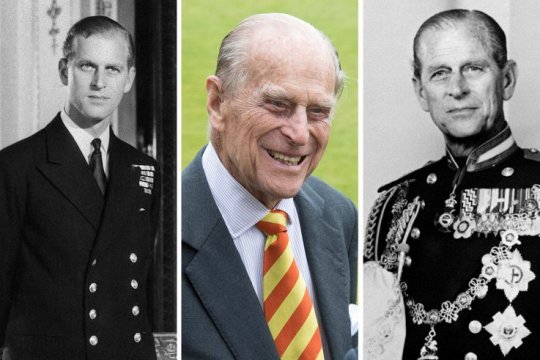
Contrary to what some might think I’m not really a fan girl when it comes to the royal family. I don’t religiously follow their every movement or utterance especially as I live in Paris and therefore I don’t really care about tabloid tittle tattle. I only get to hear of anything to do with the royal family when I speak to my parents or my great aunts and uncles for whom the subject is closer to their heart because of the services my family has rendered over past generations to the monarchy and the older (and dying) tight knit social circles they travel in.
Like Walter Bagehot, I’m more interested in the monarchy as an institution and its constitutional place within the historical, social, and political fabric of Britain and its continued delicate stabilising importance to that effect. It was Walter Bagehot, the great constitutional scholar and editor the Economist magazine, who said, “The mystic reverence, the religious allegiance, which are essential to a true monarchy, are imaginative sentiments that no legislature can manufacture in any people.” In his view, a politically-inactive monarchy served the best interests of the United Kingdom; by abstaining from direct rule, the monarch levitated above the political fray with dignity, and remained a respected personage to whom all subjects could look to as a guiding light.
Even as a staunch monarchist I freely confess that there has always been this odd nature of the relationship between hereditary monarchy and a society increasingly ambivalent about the institution. To paraphrase Bagehot again, there has been too much ‘daylight’ shone onto the ‘magic’ of the monarchy because we are obsessed with personalities as celebrities.
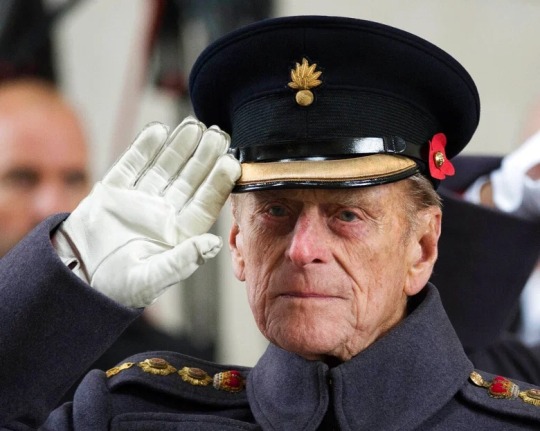
Having said that I did feel saddened by the passing of Prince Philip, the Duke of Edinburgh. After the Queen, he was my favourite royal. Anne, Princess Royal, would come next because she is very much like her father in temperament, humour, and character, so unlike her other brothers.
I have met the late Prince Philip when I was serving in the army in a few regimental meet-and-greet situations - which as you may know is pretty normal given that members of the royal family serve as honorary colonel-in-chiefs (patrons in effect) of all the British army regiments and corps.I also saw him at one or two social events such the annual charitable Royal Caledonian Ball (he’s an expert scottish reeler) and the Guards Polo Club where my older brothers played.
I’ll will freely confess that he was the one royal I could come close to identify with because his personal biography resonated with me a great deal.
Let’s be honest, the core Windsor family members, born to privilege, are conditioned and raised to be dull. Perhaps that’s a a tad harsh. I would prefer the term ‘anonymously self-effacing’, just another way of saying ‘for God’s sake don’t draw attention to yourself by saying or doing anything even mildly scandalous or political lest it invites public opprobrium and scrutiny’. The Queen magnificently succeeds in this but the others from Charles down just haven’t (with the exception of Princess Anne).
However, many people forget this obvious fact that it’s the incoming husbands and wives who marry into the Windsor family who are relied upon to bring colour and even liven things up a little. And long before Kate Middleton, Meghan Markle (very briefly), or Lady Diana Spencer, were the stars of ‘The Firm’- a phrase first coined by King George VI, Queen Elizabeth II's father who ruled from 1936 to 1952, who was thought to have wryly said, "British royals are 'not a family, we're a firm,” - it was Prince Philip who really livened things up and made the greater impact on the monarchy than any of them in the long term.
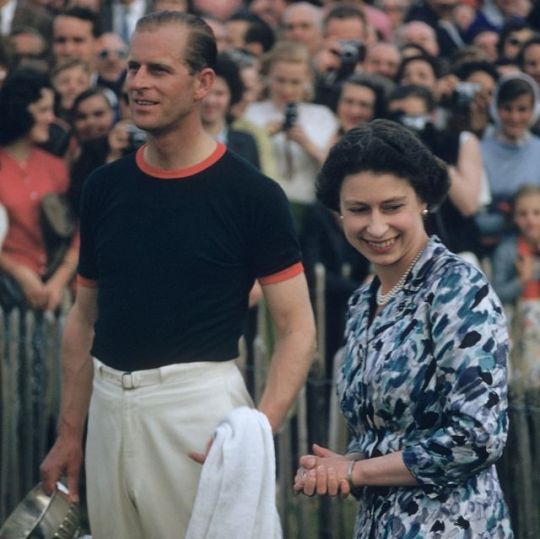
Prince Philip’s passing belied the truth of a far more complex individual: a destitute and penniless refugee Greek-Danish prince with a heart breaking backstory that could have been penned by any 19th Century novelist, and also eagle eyed reformer who tried to drag the royal family into the 20th century. At the core of the man - lost scion of a lost European royal dynasty, a courageous war veteran, and Queen’s consort - were values in which he attempted to transform and yet maintain much older inherited traditions and attitudes. Due to his great longevity, Philip’s life came to span a period of social change that is almost unprecedented, and almost no one in history viewed such a transformation from the front row.
Prince Philip would seem to represent in an acute form the best of the values of that era, which in many ways jar with today’s. He had fought with great courage in the war as a dashing young naval officer; he was regularly rude to foreigners, which was obviously a bonus to all Brits. He liked to ride and sail and shoot things. He was unsentimental almost to a comic degree, which felt reassuring at a time when a new-found emotional incontinence made many feel uncomfortable. Outrageous to some but endearing to others, he was the sort of man you’d want to go for a pint with, perhaps the ultimate compliment that an Englishman can pay to another Englishman. This has its own delicious irony as he wasn’t really an Englishman.
There are 4 takeways I would suggest in my appraisal of Prince Philip that stand out for me. So let me go through each one.
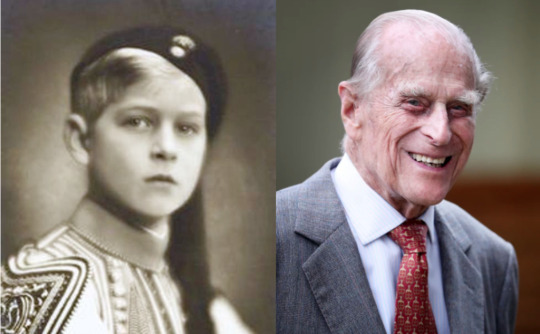
1. Prince Philip’s Internationalism
It may seem odd for me to say that Prince Philip wasn’t English but he wasn’t an Englishman in any real sense. He was a wretch of the world - stateless, homeless, and penniless. That the Prince of Nowhere became the British Monarchy’s figurehead was more than fitting for a great age of migration and transition in which the Royal Family survived and even flourished. That he was able to transform himself into the quintessential Englishman is testimony not just to his personal determination but also to the powerful cultural pull of Britishness.
He was born on a kitchen table in Corfu in June 1921. A year later in 1922, Philip, as the the great-great-grandson of Queen Victoria and nephew of Constantine I of Greece, was forced to flee with his family after the abdication of Constantine. He grew up outside Paris speaking French; ethnically he was mostly German although he considered himself Danish, his family originating from the Schleswig border region. He was in effect, despite his demeanour of Royal Navy officer briskness, a citizen of nowhere in an age of movement. From a very young age he was a stateless person, nationally homeless. Indeed, Philip was an outsider in a way that even Meghan Markle could never be; at his wedding in 1947, his three surviving sisters and two brothers-in-law were not permitted to attend because they were literally Britain’s enemies, having fought for the Germans. A third brother-in-law had even been in the SS, working directly for Himmler, but had been killed in the conflict.
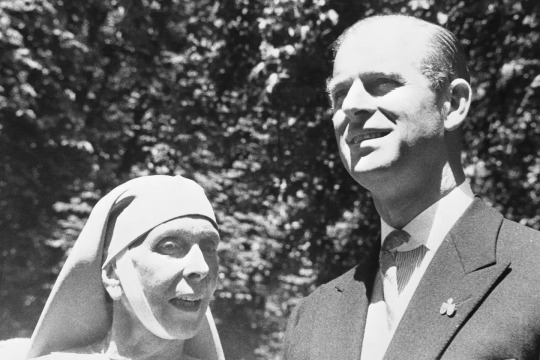
Even his religion was slightly exotic. He was Greek Orthodox until he converted to Anglicanism on marrying Elizabeth - what with his wife due to become supreme head of the Church and everything - but his ties with eastern Christianity remained. His great-aunts Princess Elisabeth of Hesse and by Rhine and Tsarina Alexandra are both martyrs of the Russian Orthodox Church, having been murdered by the Bolsheviks; Philip’s mother went on to become an Orthodox nun and a “Righteous Among the Nations” for saving a Jewish family during the Nazi occupation of Greece, spending much of her time in squalid poverty.
His parents were part of the largely German extended aristocracy who ruled almost all of Europe before it all came crashing down in 1918. When he died, aged 99, it marked a near-century in which all the great ideological struggles had been and gone; he had been born before the Soviet Union but outlived the Cold War, the War on Terror and - almost - Covid-19.
The world that Philip was born into was a far more violent and dangerous place than ours. In the year he was born, Irish rebels were still fighting Black and Tans; over the course of 12 months the Spanish and Japanese prime ministers were assassinated, there was a coup in Portugal and race riots in the United States. Germany was rocked by violence from the far-Left and far-Right, while in Italy a brutal new political movement, the Fascists, secured 30 seats in parliament, led by a trashy journalist called Benito Mussolini.
The worst violence, however, took place in Greece and Turkey. Following the defeat of the Ottoman Empire, what remained of Turkey was marked for permanent enfeeblement by the Allies. But much to everyone’s surprise the country’s force were roused by the brilliant officer Mustafa Kemal, who led the Turks to victory. Constantinople was lost to Christendom for good and thousands of years of Hellenic culture was put to the flames in Smyrna.
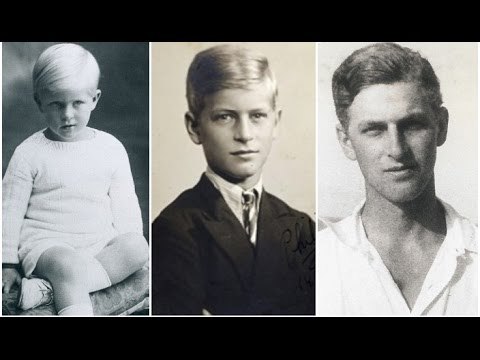
The Greek royal family, north German imports shipped in during the 19th century, bore much of the popular anger for this disaster. King Constantine fled to Italy, and his brother Andrew was arrested and only escaped execution through the intervention of his relative Britain’s George V. Andrew’s wife Alice, their four daughters and infant son Philip fled to France, completely impoverished but with the one possession that ensures that aristocrats are never truly poor: connections.
Philip had a traumatic childhood. He was forged by the turmoil of his first decade and then moulded by his schooling. His early years were spent wandering, as his place of birth ejected him, his family disintegrated and he moved from country to country, none of them ever his own. When he was just a year old, he and his family were scooped up by a British destroyer from his home on the Greek island of Corfu after his father had been condemned to death. They were deposited in Italy. One of Philip's first international journeys was spent crawling around on the floor of the train from an Italian port city, "the grubby child on the desolate train pulling out of the Brindisi night," as his older sister Sophia later described it.
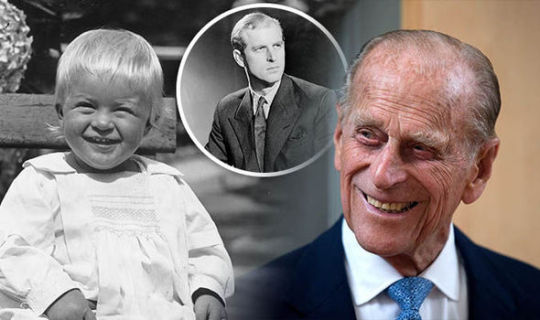
In Paris, he lived in a house borrowed from a relative; but it was not destined to become a home. In just one year, while he was at boarding school in Britain, the mental health of his mother, Princess Alice, deteriorated and she went into an asylum; his father, Prince Andrew, went off to Monte Carlo to live with his mistress. "I don't think anybody thinks I had a father," he once said. Andrew would die during the war. Philip went to Monte Carlo to pick up his father's possessions after the Germans had been driven from France; there was almost nothing left, just a couple of clothes brushes and some cuff-links.
Philip’s four sisters were all much older, and were soon all married to German aristocrats (the youngest would soon die in an aeroplane crash, along with her husband and children). His sisters became ever more embroiled in the German regime. In Scotland going to Gordonstoun boarding school, Philip went the opposite direction, becoming ever more British. Following the death of his sister Cecilie in a plane crash in 1937, the gulf widened. As the clouds of conflict gathered, the family simply disintegrated. With a flash of the flinty stoicism that many would later interpret, with no little justification, as self-reliance to the point of dispassion, the prince explained: “It’s simply what happened. The family broke up… I just had to get on with it. You do. One does.”
In the space of 10 years he had gone from a prince of Greece to a wandering, homeless, and virtually penniless boy with no-one to care for him. He got through it by making a joke of everything, and by being practical.
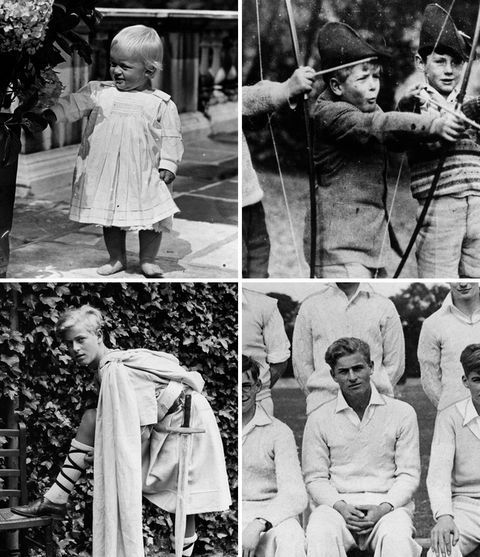
By the time he went to Gordonstoun, a private boarding school on the north coast of Scotland, Philip was tough, independent and able to fend for himself; he'd had to be. Gordonstoun would channel those traits into the school's distinct philosophy of community service, teamwork, responsibility and respect for the individual. And it sparked one of the great passions of Philip's life - his love of the sea. It was Gordonstoun that nurtured that love through the maturation of his character.
Philip adored the school as much as his son Charles would despise it. Not just because the stress it put on physical as well as mental excellence - he was a great sportsman. But because of its ethos, laid down by its founder Kurt Hahn, a Jewish exile from Nazi Germany.
Hahn first met Philip as a boy in Nazi Germany. Through a connection via one of his sister’s husbands, Philip, the poor, lonely boy was first sent off to a new school - in Nazi Germany. Which was as fun as can be imagined. Schloss Salem had been co-founded by stern educator called Kurt Hahn, a tough, discipline-obsessed conservative nationalist who saw civilisation in inexorable decline. But by this stage Hahn, persecuted for being Jewish in Nazi Germany, had fled to Britain, and Philip did not spend long at the school either, where pressure from the authorities was already making things difficult for the teachers. Philip laughed at the Nazis at first, because their salute was the same gesture the boys at his previous school had to make when they wanted to go to the toilet, but within a year he was back in England, a refugee once again.
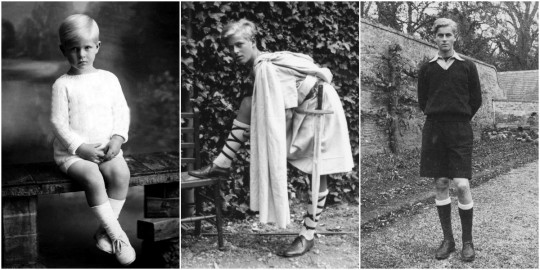
Philip happily attended Hahn’s new school, Gordonstoun, which the strict disciplinarian had set up in the Scottish Highlands. Inspired by Ancient Sparta, the boys (and then later girls) had to run around barefoot and endure cold showers, even in winter, the whole aim of which was to drive away the inevitable civilisational decay Hahn saw all around him. To 21st century ears it sounds like hell on earth, yet Philip enjoyed it, illustrating just what a totally alien world he came from.
That ethos became a significant, perhaps the significant, part of the way that Philip believed life should be lived. It shines through the speeches he gave later in his life. "The essence of freedom," he would say in Ghana in 1958, "is discipline and self-control." The comforts of the post-war era, he told the British Schools Exploring Society a year earlier, may be important "but it is much more important that the human spirit should not be stifled by easy living". And two years before that, he spoke to the boys of Ipswich School of the moral as well as material imperatives of life, with the "importance of the individual" as the "guiding principle of our society".
It was at Gordonstoun one of the great contradictions of Philip's fascinating life was born. The importance of the individual was what in Kurt Hahn's eyes differentiated Britain and liberal democracies from the kind of totalitarian dictatorship that he had fled. Philip put that centrality of the individual, and individual agency - the ability we have as humans to make our own moral and ethical decisions - at the heart of his philosophy.
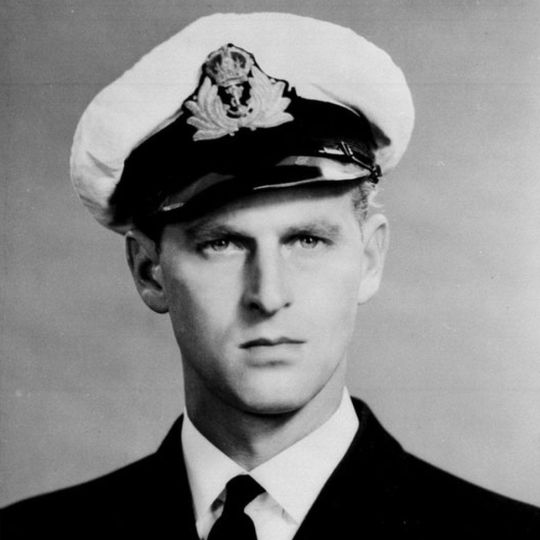
At Dartmouth Naval College in 1939, the two great passions of his life would collide. He had learned to sail at Gordonstoun; he would learn to lead at Dartmouth. And his driving desire to achieve, and to win, would shine through. Despite entering the college far later than most other cadets, he would graduate top of his class in 1940. In further training at Portsmouth, he gained the top grade in four out of five sections of the exam. He became one of the youngest first lieutenants in the Royal Navy.
The navy ran deep in his family. His maternal grandfather had been the First Sea Lord, the commander of the Royal Navy; his uncle, "Dickie" Mountbatten, had command of a destroyer while Philip was in training. In war, he showed not only bravery but guile. It was his natural milieu. "Prince Philip", wrote Gordonstoun headmaster Kurt Hahn admiringly, "will make his mark in any profession where he will have to prove himself in a trial of strength".
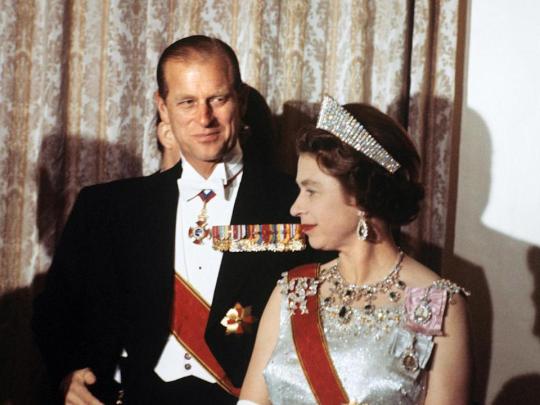
2. Prince Philip and the modernisation of the monarchy
In his own words, the process of defining what it meant to be a royal consort was one of “trial and error.” Speaking with BBC One’s Fiona Bruce in 2011, Philip explained, “There was no precedent. If I asked somebody, 'What do you expect me to do?' they all looked blank. They had no bloody idea, nobody had much idea.” So he forged for himself a role as a moderniser of the monarchy.
He could not have had much idea back in 1939. Back then in Dartmouth in 1939, as war became ever more certain, the navy was his destiny. He had fallen in love with the sea itself. "It is an extraordinary master or mistress," he would say later, "it has such extraordinary moods." But a rival to the sea would come.
When King George VI toured Dartmouth Naval College, accompanied by Philip's uncle, he brought with him his daughter, Princess Elizabeth. Philip was asked to look after her. He showed off to her, vaulting the nets of the tennis court in the grounds of the college. He was confident, outgoing, strikingly handsome, of royal blood if without a throne. She was beautiful, a little sheltered, a little serious, and very smitten by Philip.
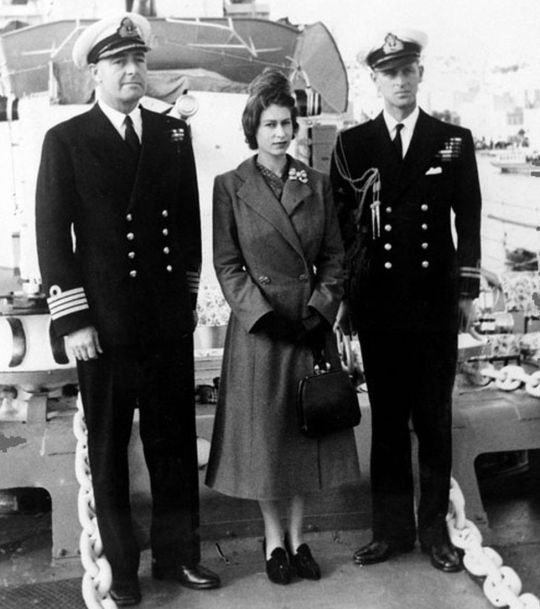
Did he know then that this was a collision of two great passions? That he could not have the sea and the beautiful young woman? For a time after their wedding in 1948, he did have both. As young newlyweds in Malta, he had what he so prized - command of a ship - and they had two idyllic years together. But the illness and then early death of King George VI brought it all to an end.
He knew what it meant, the moment he was told. Up in a lodge in Kenya, touring Africa, with Princess Elizabeth in place of the King, Philip was told first of the monarch's death in February 1952. He looked, said his equerry Mike Parker, "as if a ton of bricks had fallen on him". For some time he sat, slumped in a chair, a newspaper covering his head and chest. His princess had become the Queen. His world had changed irrevocably.
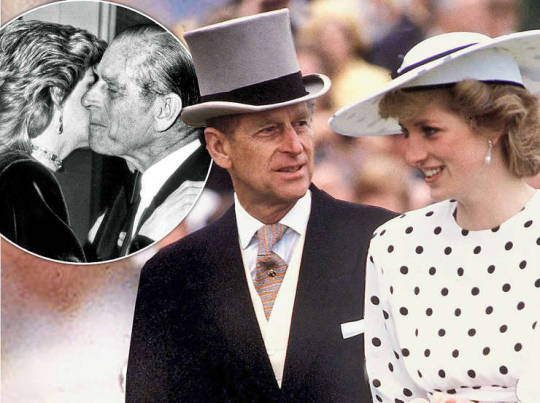
While the late Princess Diana was later to famously claim that there were “three people” in her marriage - herself, Prince Charles and Camilla - there were at least 55 million in Philip and Elizabeth’s. As Elizabeth dedicated her life to her people at Westminster Abbey at the Coronation on June 2, 1953, it sparked something of an existential crisis in Philip. Many people even after his death have never really understood this pivotal moment in Philip’s life. All his dreams of being a naval officer and a life at sea as well as being the primary provider and partner in his marriage were now sacrificed on the altar of duty and love.
With his career was now over, and he was now destined to become the spare part. Philip, very reasonably, asked that his future children and indeed his family be known by his name, Mountbatten. In effect he was asking to change the royal family’s name from the House of Windsor to the House of Mountbatten. But when Prime Minister Winston Churchill got wind of it as well as the more politically agile courtiers behind the Queen, a prolonged battle of wits ensued, and it was one Philip ultimately lost. It was only in 1957 that he accepted the title of “Prince.”
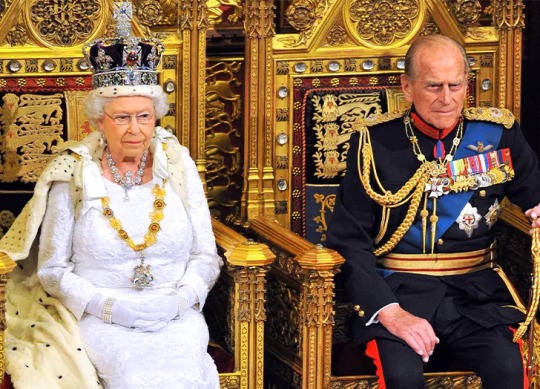
Even though he had almost lost everything dear to him and his role now undefined, he didn’t throw himself a pity party. He just got on with it. Philip tried to forge his own distinct role as second fiddle to the woman who had come to represent Great Britain. He designated himself the First Officer of the Good Ship Windsor. He set about dusting off some of the cobwebs off the throne and letting some daylight unto the workings of the monarchy by advocating reasonable amount of modernisation of the monarchy.
He had ideas about modernising the royal family that might be called “improving optics” today. But in his heart of hearts he didn’t want the monarchy to become a stuffy museum piece. He envisaged a less stuffy and more popular monarchy, relevant to the lives of ordinary people. Progress was always going to be incremental as he had sturdy opposition from the old guard who wanted to keep everything as it was, but nevertheless his stubborn energy resulted in significant changes.
When a commission chaired by Prince Philip proposed broadcasting the 1953 investiture ceremony that formally named Elizabeth II as queen on live television, Prime Minister Winston Churchill reacted with outright horror, declaring, “It would be unfitting that the whole ceremony should be presented as if it were a theatrical performance.” Though the queen had initially voiced similar concerns, she eventually came around to the idea, allowing the broadcast of all but one segment of the coronation. Ultimately, according to the BBC, more than 20 million people tuned in to the televised ceremony - a credit to the foresight of Philip.
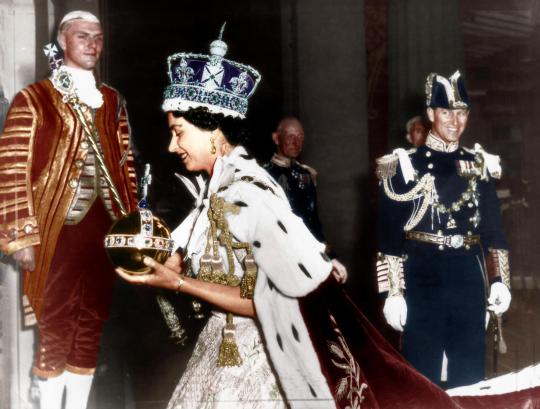
Elizabeth’s coronation marked a watershed moment for a monarchy that has, historically, been very hands off, old-fashioned and slightly invisible. Over the following years, the royals continued to embrace television as a way of connecting with the British people: In 1957, the queen delivered her annual Christmas address during a live broadcast. Again, this was Philip’s doing when he cajoled the Queen to televise her message live. He even helped her in how to use the teleprompter to get over her nerves and be herself on screen.
Four years later, in 1961, Philip became the first family member to sit for a television interview. It is hard for us to imagine now but back then it was huge. For many it was a significant step in modernising the monarchy.
Though not everything went to plan. Toward the end of the decade, the Windsors even invited cameras into their home. A 1969 BBC fly-on-the-wall documentary, instigated by Philip to show life behind the scenes, turned into an unmitigated disaster: “The Windsors” revealed the royals to be a fairly normal, if very rich, British upper-class family who liked barbecues, ice cream, watching television and bickering. The mystery of royalty took a hit below the waterline from their own torpedo, a self-inflicted wound from which they took a long time to recover. Shown once, the documentary was never aired again. But it had an irreversible effect, and not just by revealing the royals to be ordinary. By allowing the cameras in, Philip opened the lid to the prying eyes of the paparazzi who could legitimately argue that since the Royals themselves had sanctioned exposure, anything went. From then on, minor members of the House of Windsor were picked off by the press, like helpless tethered animals on a hunting safari.
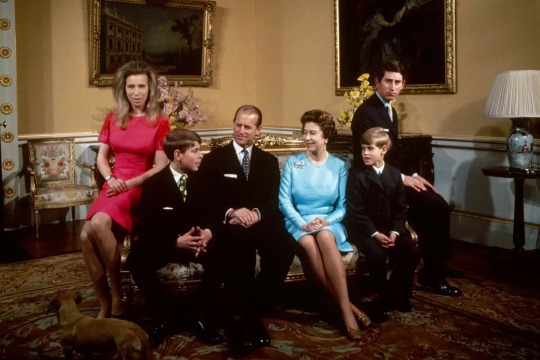
Prince Philip also took steps to reorganise and renovate the royal estates in Sandringham and Balmoral such as intercoms, modern dish washers, generally sought to make the royal household and the monarchy less stuffy, not to have so much formality everywhere.
Philip helped modernised the monarchy in other ways to acknowledge that the monarchy could be responsive to changes in society. It was Prince Philip - much to the chagrin of the haughty Princess Margaret and other stuffy old courtiers - who persuaded the Queen to host informal lunches and garden parties designed to engage a broader swath of the British public. Conversely, Prince Philip heartily encouraged the Queen (she was all for it apparently but was still finding her feet as a new monarch) to end the traditional practice of presenting debutantes from aristocratic backgrounds at court in 1952. For Philip and others it felt antiquated and out of touch with society. I know in speaking to my grandmother and others in her generation the decision was received with disbelief at how this foreign penniless upstart could come and stomp on the dreams of mothers left to clutch their pearls at the prospect there would be no shop window for their daughter to attract a suitable gentleman for marriage. One of my great aunts was over the moon happy that she never would have to go through what she saw as a very silly ceremony because she preferred her muddy wellies to high heels.
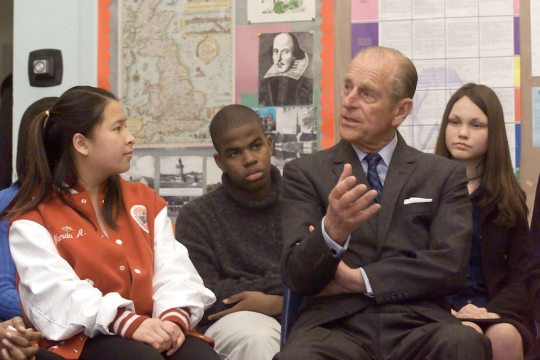
A former senior member of the royal household, who spent several years working as one of Prince Philip’s aides, and an old family friend, once told us around a family dinner table that the Duke of Edinburgh was undoubtedly given a sense of permanence by his marriage into the Royal Family that was missing from earlier years. But the royal aide would hastily add that Prince Philip, of course, would never see it that way.
Prince Philip’s attitude was to never brood on things or seek excuses. And he did indeed get on with the job in his own way - there should be no doubt that when it came to building and strengthening the Royal Family it was a partnership of equals with the Queen. Indeed contrary to Netflix’s hugely popular series ‘The Crown’ and its depiction of the royal marriage with Philip’s resentment at playing second fiddle, the prince recognised that his “first duty was to serve the Queen in the best way I could,” as he told ITV in 2011. Though this role was somewhat ill-suited to his dynamic, driven, and outspoken temperament, Philip performed it with utter devotion.
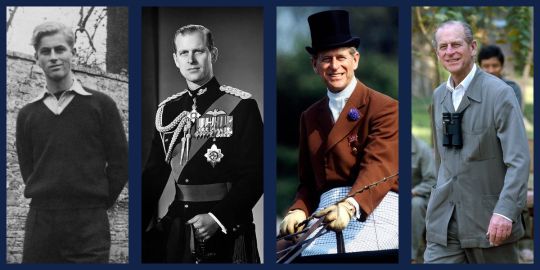
3. Prince Philip’s legacy
One could argue rightly that modernising the monarchy was his lasting legacy achievement. But he also tried to modernise a spent and exhausted Britain as it emerged from a ruinous war. When peace came, and with it eventual economic recovery, Philip would throw himself into the construction of a better Britain, urging the country to adopt scientific methods, embracing the ideas of industrial design, planning, education and training. A decade before Harold Wilson talked of the "white heat of the technological revolution", Philip was urging modernity on the nation in speeches and interviews. He was on top of his reading of the latest scientific breakthroughs and well read in break out innovations.
This interest in modernisation was only matched by his love for nature. As the country and the world became richer and consumed ever more, Philip warned of the impact on the environment, well before it was even vaguely fashionable. As president of the World Wildlife Fund (WWF) in the UK for more than 20 years from 1961, he was one of the first high-profile advocates of the cause of conservation and biological diversity at a time when it was considered the preserve of an eccentric few.
For a generation of school children in Britain and the Commonwealth though, his most lasting legacy and achievement will be the Duke of Edinburgh Awards (DofE). He set up the Duke of Edinburgh award, a scheme aimed at getting young people out into nature in search of adventure or be of service to their communities. It was a scheme that could match the legacy of Baden Powell’s scouts movement.
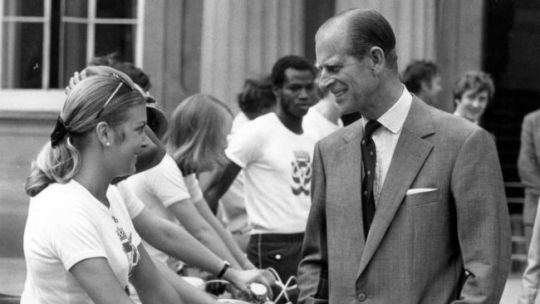
When Prince Philip first outlined his idea of a scheme to harness the values of his education at Gordonstoun by bringing character-building outdoor pursuits to the many rather than the fee-paying few, he received short shrift from the government of the day. The then minister of education, Sir David Eccles responded to the Duke’s proposal by saying: “I hear you’re trying to invent something like the Hitler Youth.” Undeterred he pushed on until it came to fruition.
I’m so glad that he did. I remember how proud I was for getting my DofE Awards while I was at boarding school. With the support of great mentors I managed to achieve my goals: collecting second-hand English books for a literacy programme for orphaned street children in Delhi, India with a close Indian school friend and her family; and completing a 350 mile hike following St. Olav’s Pilgrimmage Trail from Selånger, on the east coast of Sweden, and ending at Nidaros Cathedral in Trondheim, on the west coast of Norway.
It continues to be an enduring legacy. Since its launch in 1956, the Duke of Edinburgh awards have been bestowed upon some 2.5 million youngsters in Britain and some eight million worldwide. For a man who once referred to himself as a “Greek princeling of no consequence”, his pioneering tutelage of these two organisations (alongside some 778 other organisations of which he was either president or a patron) would be sufficient legacy for most.
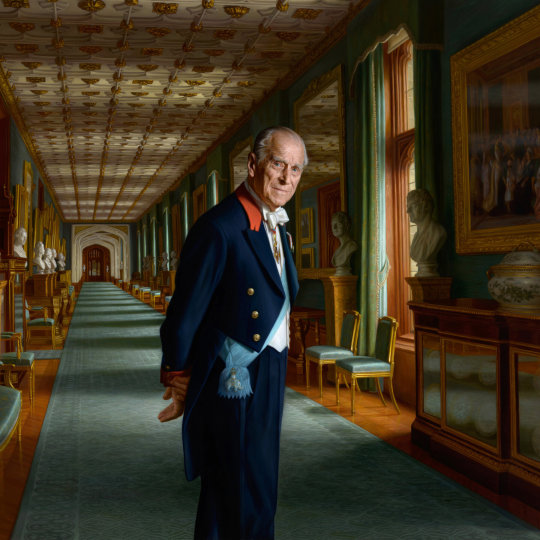
4. Prince Philip’s character
It may surprise some but what I liked most about Prince Philip was the very thing that helped him achieve so much and leave a lasting legacy: his character.
It is unhelpful to the caricature of Prince Philip as an unwavering but pugnacious consort whose chief talent was a dizzying facility in off-colour one-liners that he was widely read and probably the cleverest member of his family.
His private library at Windsor consists of 11,000 tomes, among them 200 volumes of poetry. He was a fan of Jung, TS Eliot, Shakespeare and the cookery writer Elizabeth David. As well as a lifelong fascination with science, technology and sport, he spoke fairly fluent French, painted and wrote a well received book on birds. It’s maddening to think how many underestimated his genuine intellect and how cultured he was behind the crusty exterior.
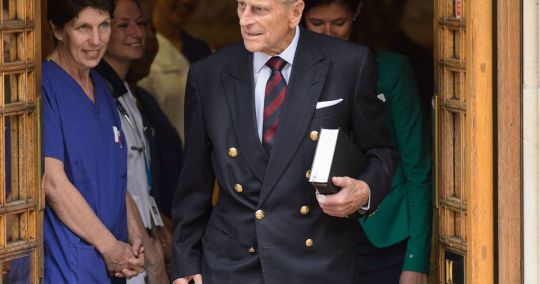
He didn’t have an entourage to fawn around him. He was the first to own a computer at Buckingham Palace. He answered his own phone and wrote and responded to his own correspondence. By force of character he fought the old guard courtiers at every turn to modernise the monarchy against their stubborn resistance.
Prince Philip was never given to self-analysis or reflection on the past. Various television interviewers tried without success to coerce him in to commenting on his legacy.But once when his guard was down he asked on the occasion of his 90th birthday what he was more proud of, he replied with characteristic bluntness: “I couldn’t care less. Who cares what I think about it, I mean it’s ridiculous.”
All of which neatly raises the profound aversion to fuss and the proclivity for tetchiness often expressed in withering put-downs that, for better or worse, will be the reflex memory for many of the Duke of Edinburgh. If character is a two edged sword so what of his gaffes?
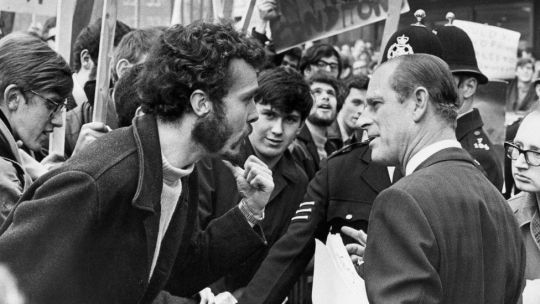
There is no doubt his cult status partly owed to his so-called legendary gaffes, of which there are enough to fill a book (indeed there is a book). But he was no racist. None of the Commonwealth people or foreign heads of state ever said this about him. Only leftist republicans with too much Twitter time on their hands screamed such a ridiculous accusation. They’re just overly sensitive snowflakes and being devoid of any humour they’re easily triggered.
There was the time that Philip accepted a gift from a local in Kenya, telling her she was a kind woman, and then adding: “You are a woman, aren’t you?” Or the occasion he remarked “You managed not to get eaten, then?” to a student trekking in Papua New Guinea. Then there was his World Wildlife Fund speech in 1986, when he said: “If it has got four legs and it is not a chair, if it has got two wings and it flies but is not an aeroplane, and if it swims and it is not a submarine, the Cantonese will eat it.” Well, he wasn’t wrong.
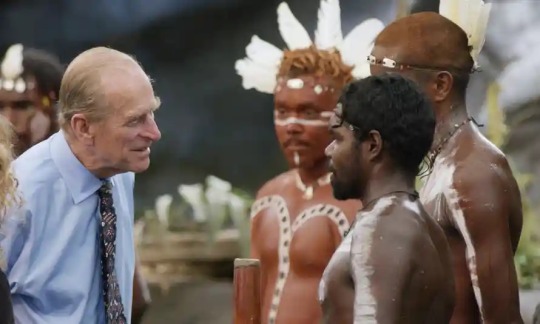
Philip quickly developed a reputation for what he once defined, to the General Dental Council, as “dentopedology – the science of opening your mouth and putting your foot in it”. Clearly he could laugh at himself as he often did as an ice breaker to put others at ease.
His remarking to the president of Nigeria, who was wearing national dress, “You look like you’re ready for bed”, or advising British students in China not to stay too long or they would end up with “slitty eyes”, is probably best written off as ill-judged humour. Telling a photographer to “just take the fucking picture” or declaring “this thing open, whatever it is”, were expressions of exasperation or weariness with which anyone might sympathise.
Above all, he was also capable of genuine if earthy wit, saying of his horse-loving daughter Princess Anne: “If it doesn’t fart or eat hay she isn’t interested.” Many people might have thought it but few dared say it. If Prince Philip’s famous gaffes provoked as much amusement as anger, it was precisely because they seem to give voice to the bewilderment and pent-up frustrations with which many people viewed the ever-changing modern world.
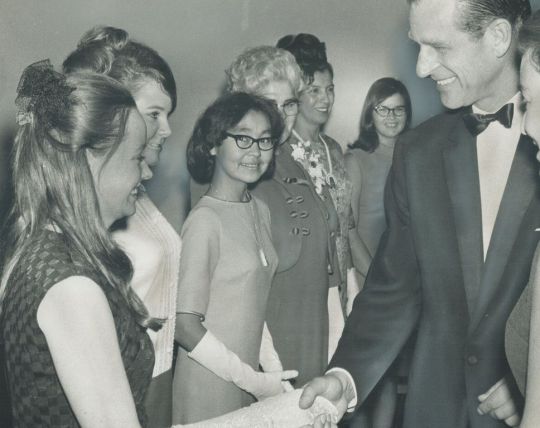
A former royal protection officer recounts how while on night duty guarding a visiting Queen and consort, he engaged in conversation with colleagues on a passing patrol. It was 2am and the officer had understood the royal couple to be staying elsewhere in the building until a window above his head was abruptly slammed open and an irate Prince Philip stuck his head out of the window to shout: “Would you fuck off!” Without another word, he then shut the window.
The Duke at least recognised from an early age that he was possessed of an abruptness that could all too easily cross the line from the refreshingly salty to crass effrontery.
One of his most perceptive biographers, Philip Eade, recounted how at the age of 21 the prince wrote a letter to a relation whose son had recently been killed in combat. He wrote: “I know you will never think much of me. I am rude and unmannerly and I say things out of turn which I realise afterwards must have hurt someone. Then I am filled with remorse and I try to put matters right.”
In the case of the royal protection officer, the Duke turned up in the room used by the police officers when off duty and said: “Terribly sorry about last night, wasn’t quite feeling myself.”
Aides have also ventured to explain away some of their employer’s more outlandish remarks - from asking Cayman islanders “You are descended from pirates aren’t you?” to enquiring of a female fashion writer if she was wearing mink knickers - as the price of his instinctive desire to prick the pomposity of his presence with a quip to put others at ease.
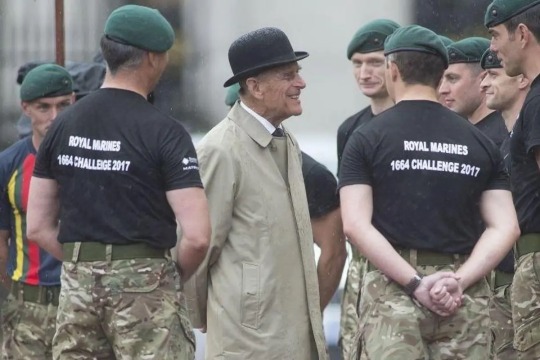
Indeed many people forget that his ‘gaffes’ were more typical of the clubbish humour of the British officer class – which of course would be less appreciated, sometimes even offensive, to other ears. It’s why he could relate so well to veterans who enjoyed his bonhomie company immensely.
But behind the irascibility, some have argued there also lay a darker nature, unpleasantly distilled in his flinty attitude to his eldest son. One anecdote tells of how, in the aftermath of the murder of the Duke’s uncle and surrogate father, Lord Mountbatten, Philip lectured his son, who was also extremely fond of his “honorary grandfather”, that he was not to succumb to self-pity. Charles left the room in tears and when his father was asked why he had spoken to his son with so little compassion, the Duke replied: “Because if there’s any crying to be done I want it to happen within this house, in front of his family, not in public. He must be toughened up, right now.”
But here I would say that Prince Philip’s intentions were almost always sincere and in no way cruel. He has always tried to protect his family - even from their own worst selves or from those outside the family ‘firm’ who may not have their best interest at heart.
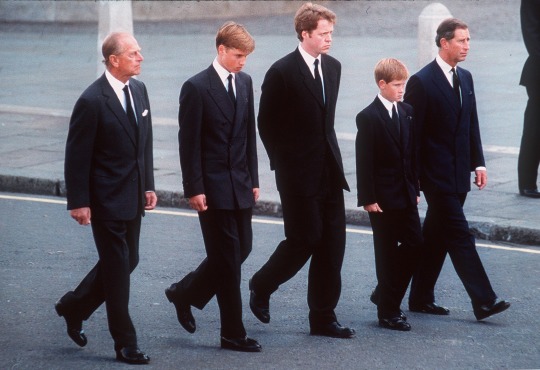
In 1937, a 16-year-old Prince Philip had walked behind his elder sister Cecile’s coffin after she was killed in a plane crash while heavily pregnant. The remains of newly-born infant found in the wreckage suggested the aircraft had perished as the pilot sought to make an emergency landing in fog as the mother entered childbirth. It was an excruciating taste of tragedy which would one day manifest itself in a very princely form of kindness that was deep down that defined Philip’s character.
When about 60 years later Prime Minister Tony Blair’s spin doctors in Downing Street tried to strong arm the Queen and the royal household over the the arrangements for the late Prince Diana’s funeral, it was Philip who stepped in front to protect his family. The Prime Minister and his media savvy spin doctors wanted the two young princes, William and Harry, to walk behind the coffin.
The infamous exchange was on the phone during a conference call between London and Balmoral, and the emotional Philip was reportedly backed by the Queen. The call was witnessed by Anji Hunter, who worked for Mr Blair. She said how surprised she was to hear Prince Philip’s emotion. ‘It’s about the boys,” he cried, “They’ve lost their mother”. Hunter thought to herself, “My God, there’s a bit of suffering going on up there”.’
Sky TV political commentator Adam Boulton (Anji Hunter’s husband) would write in his book Tony’s Ten Years: ‘The Queen relished the moment when Philip bellowed over the speakerphone from Balmoral, “Fuck off. We are talking about two boys who have just lost their mother”. Boulton goes on to say that Philip: ‘…was trying to remind everyone that human feelings were involved. No 10 were trying to help the Royals present things in the best way, but may have seemed insensitive.’
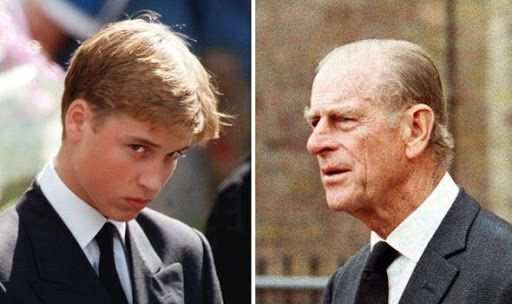
In the end the politicians almost didn’t get their way. Prince Philip stepped in to counsel his grandson, Prince William, after he had expressed a reluctance to follow his mother’s coffin after her death in Paris. Philip told the grieving child: “If you don’t walk, I think you’ll regret it later. If I walk, will you walk with me?”
It’s no wonder he was sought as a counsellor by other senior royals and especially close to his grandchildren, for whom he was a firm favourite. His relationship with Harry was said to have become strained, however, following the younger Prince’s decision to reject his royal inheritance for a life away from the public eye in America with his new American wife, Meghan Markle. For Prince Philip I am quite sure it went against all the elder Prince had lived his life by - self-sacrifice for the greater cause of royalty.
This is the key to Philip’s character and in understanding the man. The ingrained habits of a lifetime of duty and service in one form or another were never far away.
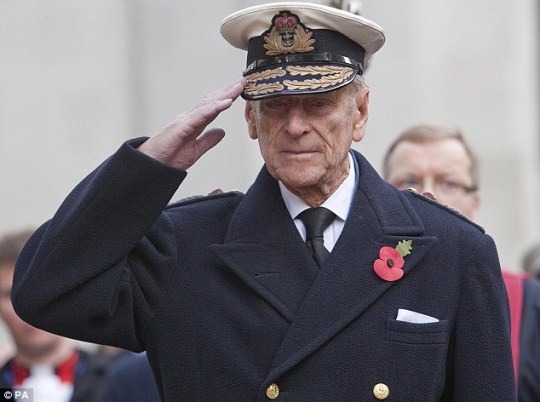
In conclusion then....
After more time passes I am sure historians will make a richer reassessment of Prince Philip’s life and legacy. Because Prince Philip was an extraordinary man who lived an extraordinary life; a life intimately connected with the sweeping changes of our turbulent 20th Century, a life of fascinating contrast and contradiction, of service and some degree of solitude. A complex, clever, eternally restless man that not even the suffocating protocols of royalty and tradition could bind him.
Although he fully accepted the limitations of public royal service, he did not see this as any reason for passive self-abnegation, but actively, if ironically, identified with his potentially undignified role. It is this bold and humorous embrace of fated restriction which many now find irksome: one is no longer supposed to mix public performance with private self-expression in quite this manner.
Yet such a mix is authentically Socratic: the proof that the doing of one’s duty can also be the way of self-fulfilment. The Duke’s sacrifice of career to romance and ceremonial office is all the more impressive for his not hiding some annoyance. The combination of his restless temperament and his deeply felt devotion to duty found fruitful expression; for instance, in the work of Saint George’s House Windsor - a centre and retreat that he created with Revd. Robin Woods - in exploring religious faith, philosophy, and contemporary issues.
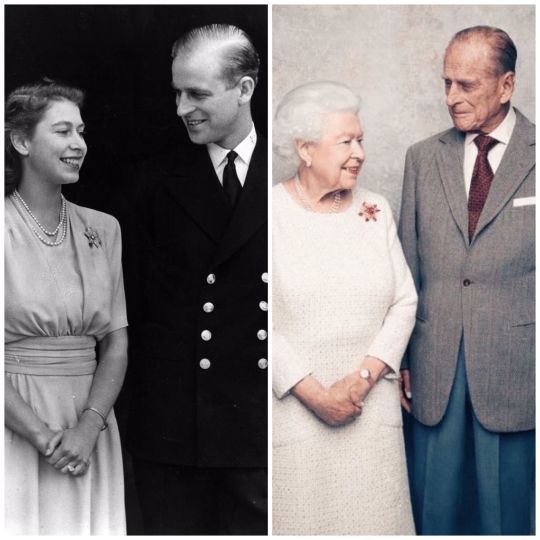
Above all he developed a way to be male that was both traditional and modern. He served one woman with chivalric devotion as his main task in life while fulfilling his public engagements in a bold and active spirit. He eventually embraced the opportunity to read and contemplate more. And yet, he remained loyal to the imperatives of his mentor Kurt Hahn in seeking to combine imagination with action and religious devotion with practical involvement.
Prince Philip took more pride in the roles he had accidentally inherited than in the personal gifts which he was never able fully to develop. He put companionship before self-realisation and acceptance of a sacred symbolic destiny before the mere influencing of events. In all these respects he implicitly rebuked our prevailing meritocracy which over-values officially accredited attainment, and our prevailing narcissism which valorises the assertion of discrete identities.
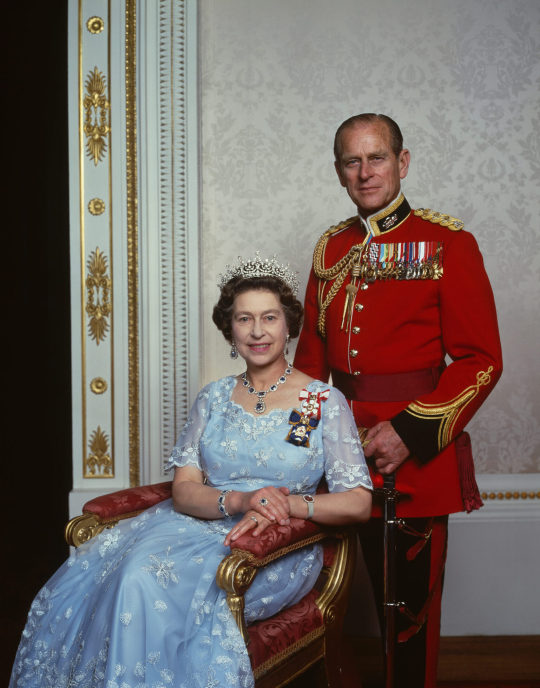
Prince Philip was Britain’s longest-serving consort. He was steadfast, duty driven, and a necessary adjunct to the continuity and stability of the Queen and the monarchy. Of all the institutions that have lost the faith of the British public in this period - the Church, Parliament, the media, the police - the Monarchy itself has surprisingly done better than most at surviving, curiously well-adapted to a period of societal change and moral anarchy. The House of Hanover and later Saxe-Coburg and Gotha (changed to Windsor), since their arrival in this country in 1714, have been noted above all for their ability to adapt. And just as they survived the Victorian age by transforming themselves into the bourgeoise, domestic ideal, so they have survived the new Elizabethan era (Harry-Meghan saga is just a passing blip like the Edward-Wallis Simpson saga of the 1930s).
There was once a time when the Royal’s German blood was a punchline for crude and xenophobic satirists. Now it is the royals who are deeply British while the country itself is increasingly cosmopolitan and globalised. British society has seen a greater demographic change than the preceding four or five thousand years combined, the second Elizabethan age has been characterised more than anything by a transformational movement of people. Prince Philip, the Greek-born, Danish-German persecuted and destitute wanderer who came to become one of the Greatest Britons of the past century, perhaps epitomised that era better than anyone else. And he got through it by making a joke of everything, and by being practical.
I hope I don’t exaggerate when I say that in our troubled times over identity, and our place and purpose in the world, we need to heed his selfless example more than ever.
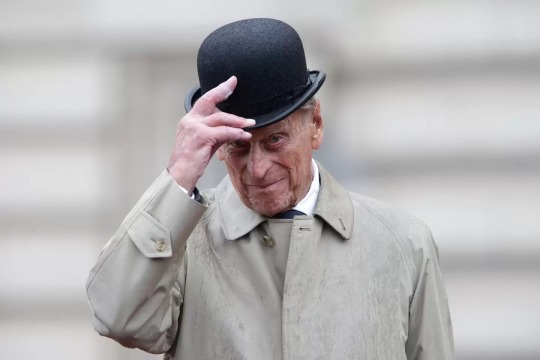
As Heraclitus wisely said, Ήθος ανθρώπω δαίμων (Character is destiny.)
RIP Prince Philip. You were my prince. God damn you, I miss you already.
Thanks for your question.
#question#ask#prince philip#duke of edinburgh#queen elizabeth II#the queen of spades#monarchy#britain#british#royalty#politics#history#culture#europe#crown#icon#great briton#society
284 notes
·
View notes
Text
When I defend the Good Friday Agreement, I do so as one of its beneficiaries

When the Good Friday Agreement was signed 20 years ago this week, I was a teenager growing up in South Armagh. While recently watching Channel 4’s fantastic new comedy ‘Derry Girls’, I couldn’t help but think that if they had relocated to the Newry-Dundalk border and made it about a group of uncouth 14 year-old lads with limited sporting prowess, mixed academic ability and occasional success with girls; that would have been us. Like the Derry Girls, we Armagh Boys were just ordinary kids trying to navigate the normal challenges of being teenagers.
But we had abnormal challenges too. Helicopters, armed soldiers, riots, bombings, shootings. On the streets, on the news. It was life, perhaps not how most people know it, but how we knew it. By 1998, it had been life for my grandparents and my parents for over 30 years, and there wasn’t much to suggest it would be anything other than life for me and my friends for the next 30 years. Then life changed, or, at least, a possibility was offered that it could change.
When I champion, defend and support the Good Friday Agreement, I do so not as one of its authors, negotiators or influencers but as one of its beneficiaries. I am the Agreement’s child, not its parent.
The mastery of the Good Friday Agreement was in its definitive pronouncements on reconciling competing concepts of identity, citizenship and constitutional aspirations.
For unionists, the principle of consent - namely that Northern Ireland would remain part of the United Kingdom for as long as the majority of people in it wish that to be the case – was a hard won and long sought recognition of their status and legitimacy.
For nationalists, that was tempered by an acknowledgement that any change to the constitutional status of Northern Ireland is a matter “for people of the island of Ireland alone… without external impediment”, on the basis of consent given “concurrently in both parts of the island”, which removed the British Government from the equation.
For me, by far the most important aspect of the Good Friday Agreement is that it enshrines the birth right of all the people of Northern Ireland to hold British and Irish citizenship, and identify as either or both. Many people are exclusively one or the other, and that is entirely legitimate. However for others, including me, it took away forced and practiced self-exclusion; the idea that if you were one you couldn’t be the other too. It meant that people didn’t have to choose, and allowed me to say in my maiden speech when, as an Ulsterman and an Irishman, I stood up in the House of Commons as a British MP representing an English constituency, “Today there is friendship and co-operation between the UK and Ireland. There is no longer any contradiction to being Irish and British and having feelings of loyalty and affinity to both countries."
I stand by what I said and still believe it. But that idea and the very Agreement it stems from is under threat. Brexit and the collapse of the institutions at Stormont have led some to say the Agreement has outlived its usefulness. They are completely wrong. The principles, substance, aspirations and vision of the Good Friday Agreement were not the end, but the beginning. They gave politicians in Northern Ireland the basis on which to construct a better future for people who lived there, like me. And, despite ups and downs, those politicians delivered. Things are much better than they were, but the work of building peace is not complete. The architects of the Good Friday Agreement gave us the plans and laid the foundations. It up to us, twenty years on, to finish the job.
*****
This article appeared in The Times on 10th April 2018.
Conor McGinn is the Labour MP for St Helens North and Chair of the All Party Parliamentary Group on Ireland and the Irish in Britain.
0 notes
Text
Vladimir Putin vs Liberalism 1:0
By James M. Dorsey
A podcast version of this story is available on Soundcloud, Itunes, Spotify, Stitcher, TuneIn, Spreaker, Pocket Casts, Tumblr, and Patreon, Podbean and Castbox.
Certain that Western and liberal democratic leaders would limit themselves to verbal denials, Russian president Vladimir Putin knew he was kicking into an open goal when he declared on the eve of the Group of 20 (G20) summit in Osaka that liberalism had “outlived its purpose.”
He may even have anticipated that US president Donald J. Trump would go further and in his own way endorse the Russian president’s assertion.
When asked at a news conference to respond to Mr. Putin’s remarks, Mr. Trump opted to denounce America’s liberals by focusing on American municipal leaders who oppose his policies, including his clampdown on migration.
Mr. Putin “sees what’s going on. If you look at what’s happening in Los Angeles…and San Francisco and a couple of other cities which are run by an extraordinary group of liberal people, I don’t know what they are thinking, but he does see things that are happening in the United States that would probably preclude him from saying how wonderful it is. I’m very embarrassed by what I see,” Mr. Trump said.
In a nod to illiberal governance, Mr. Trump went on to say that “you don’t want it to spread and at a certain point, I think the federal government may have to get involved. We can’t let that continue to happen.”
Mr. Trump’s response was not a one-off remark. His empathy with illiberalism was also evident in his refusal to seriously take Mr. Putin to task for alleged Russian interference in US elections despite the conclusion by US intelligence and special counsel Robert Mueller that there had been extensive meddling.
Similarly, during a breakfast meeting at the G-20 with crown prince Mohammed bin Salman, Mr. Trump praised the Saudi leader for doing a “spectacular job.”
He praised Prince Mohammed as “a man who has really done things in the last five years in terms of opening up Saudi Arabia” and described the prince’s enhancement of some women’s rights as a “a revolution in a very positive way.”
Mr. Trump made no mention of the fact that Prince Mohammed had imprisoned activists who had campaigned for things like the lifting of a ban on women’s driving as well as scores of critics and dissidents.
The activists, some of whom have asserted that they have been tortured, are standing trial on charges of undertaking “coordinated and organized activities… that aim to undermine the Kingdom’s security, stability, and national unity.”
Like virtually all Western and liberal democratic leaders at the G20, Mr. Trump played down Saudi Arabia’s lack of transparent accountability for last October’s killing of journalist Jamal Khashoggi as well as the conduct of the Saudi-United Arab Emirates-led war in Yemen.
The leaders made sure that Prince Mohammed, the host of next year’s G20, was not isolated as he was at their gathering last year in Buenos Aires.
A senior official tempered outgoing British prime minister Teresa May’s call for accountability in a one-on-one with Prince Mohammed by noting that the two leaders had “concluded by agreeing on the importance of the relationship” and of “regional stability” with no apparent qualification.
Perhaps because the targeting in 2018 of two Russians with a nerve agent occurred on British soil, Ms. May took a tougher stand than most in a frosty meeting with Mr. Putin.
“The prime minister underlined that we remain open to a different relationship, but for that to happen the Russian government must choose a different path. The prime minister said the UK would continue to unequivocally defend liberal democracy and protect the human rights and equality of all groups, including LGBT people,” a spokesperson for Ms. May said.
By and large, however, Western and liberal democratic leaders seemed to lend credibility to Mr. Putin’s assertion on liberalism by failing to put their money where their mouth is.
They were equally soft gloved in their interactions with Chinese president Xi Jinping when it came to liberal values such as human rights.
There was no apparent mention, at least no public mention, of China’s brutal clampdown on Turkic Muslims in the troubled north-western province of Xinjiang.
The incarceration in re-education camps of an estimated one million Uyghurs amounts to the most frontal assault on a faith group since World War Two’s Nazi assault on Jews.
Likewise, there was overall little that went beyond strong verbiage in the response by liberal democratic leaders to Mr. Putin’s attempt to fuel polarisation in the West by asserting that liberalism “presupposes that…migrants can kill, plunder and rape with impunity because their rights… have to be protected.”
As a result, European Council president Donald Tusk’s retort put little, if any meat, on the response of liberal democratic leaders and seemed more like paying sharp-tongued lip service to values such as human rights
“For us in Europe, these are and will remain essential and vibrant values. What I find really obsolete are authoritarianism, personality cults, the rule of oligarchs. Even if sometimes they may seem effective,” Mr. Tusk said.
Dr. James M. Dorsey is a senior fellow at Nanyang Technological University’s S. Rajaratnam School of International Studies, an adjunct senior research fellow at the National University of Singapore’s Middle East Institute and co-director of the University of Wuerzburg’s Institute of Fan Culture.
#Russia#Vladimir Putin#putin#United States#Trump#saudi arabia#saudi#mbs#China (PRC)#china#Xi Jinping#xinjiang#uyghur#europe#democracy#liberal#human rights#EU
0 notes